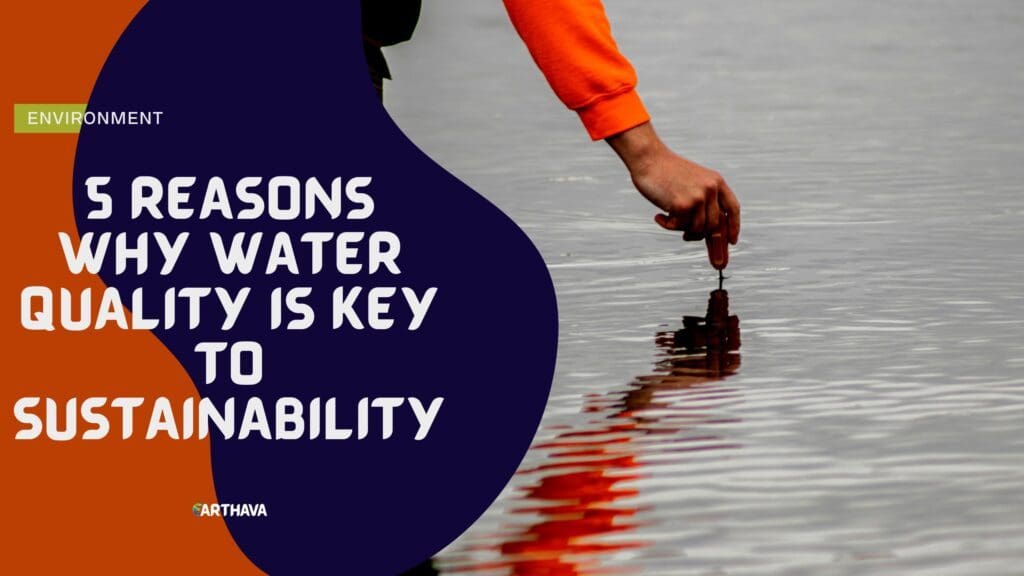Many connections can be made between water quality and sustainability. Water impacts our lives in several ways, and it’s vital to treat it right for our health and that of the planet. Here’s a look at how and why sustainability makes a difference for water.

There Isn’t Life Without Water
You can’t survive without water. It’s a fundamental resource that humans and animals need to live. That’s reason enough to advocate for clean water. That said, it’s essential to identify other crucial areas that require water. Water quality must be a priority if people want to maintain specific systems, such as sewers and plumbing. Our world revolves around water in more ways than one.
It’s often a surprise to remember how water impacts our livelihoods, from food production to ocean waste to sanitation methods.
Food Production
The planet has a limited clean water supply. In many countries, it’s overwhelmingly used as irrigation for agriculture. For example, America dedicates 80% to crop and livestock needs throughout most states. Therefore, you can imagine what might happen if water became scarce.
Unfortunately, you don’t have to imagine. Places like Chad and Zimbabwe have recently endured extensive droughts — and as a result, they’re in famine.
You can’t have food without water. There are numerous instances where climate change contributes to water scarcity through weather events. Therefore, you have to fight for environmental action to protect global food production.
Ocean Waste
Poor water quality impacts ocean life, too. Billions of pounds of trash and debris enter our oceans annually. This waste turns sustained environments into inhabitable areas, and the surrounding wildlife and ecosystems suffer as a consequence. It’s crucial to note that coastal economies face an extraordinary problem, as well. After all, you can’t sell contaminated seafood.
Many people don’t know that ocean waste impacts humans. However, if your livelihood depends on the ocean’s products or transportation, you’d feel certain losses almost immediately. That’s why it’s beneficial to advocate for clean water across the board.
Sanitation Methods
How do you clean your house? You use water — and other household products. Those who don’t have access to abundant clean water can’t protect against infections caused by germs. The same idea applies to showers and toilets. It’s impossible to maintain proper hygiene when there’s no available clean water. As a result, your life quality diminishes. It’s a basic human need to keep your home and body clean.
You can use water filters to increase drinking water quality in your household. That said, it’s not always possible for people to access such technology. The ties between water quality and sustainability are clear. To avoid disease, it’s essential to have clean water.
Goods Manufacturing and Energy Production Require Water
How did your TV end up at your house? It was transported by water, land or air to end up at your local electronics store. It would be impossible for manufacturing to exist if any of these transportation methods became unusable.
A similar notion applies to energy production. In fact, they’re intertwined. It takes water to create energy, but you also need power to produce clean water.
Therefore, it’s necessary to pursue clean water initiatives if we want to maintain our global systems. The world can’t metaphorically turn if we don’t have clean water.
Water Quality and Sustainability Goals Go Hand-in-Hand
If you want to achieve a sustainable planet, you can’t forget about water. This substance is life in more than one way. It provides food, sanitation, transport, and various products and systems necessary for a good existence. Therefore, it’s vital to protect it.


